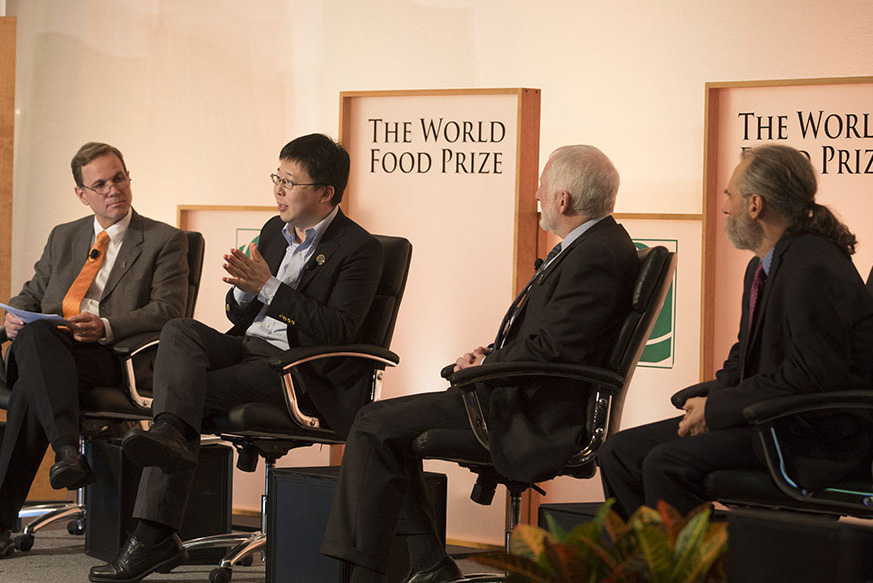
So-called “orphan crops” that are largely unknown in the West, but vital to food security across Africa, missed out on the Green Revolution and are behind the curve when it comes to biotechnology.
Now, leading food researchers and scientists want to make sure that they don t miss out on the CRISPR revolution as well.
At a panel discussion on CRISPR-Cas9 technology at the World Food Prize events in Iowa, researchers pointed to the massive potential of the gene-editing tool to improve crops like cassava, millet, sorghum and teff.
CRISPR technology uses gene editing to produce better seeds by inserting desirable traits, or removing or silencing unwanted ones.
Nigel Taylor, a senior research scientist at the Donald Danforth Plant Science Center, said that CRISPR could help Africa reap the types of gains achieved during the Green Revolution that brought dramatically higher yields of wheat and rice to Asia and Latin America.
Taylor and his co-panelists discussed the technology at a three-day symposium that surrounds the presentation of the World Food Prize, which was created by Norman Borlaug, “Father of the Green Revolution,” in 1986.
According to Taylor, the potential of applying CRISPR technology to orphan crops is enormous precisely because those crops have not undergone the types of improvements seen in more common foodstuffs like maize and rice. He said that teff, an ancient fine grain that is a food security crop for roughly 50 million people in the Horn of Africa, is a prime candidate to see rapid gains through gene editing.
We would like to bring the Green Revolution to teff and we can do this through CRISPR-Cas, he said. It s technologically simple to do [and] I believe we can do it very quickly. I want to start next week.
But to truly bring the benefits of CRISPR to Africa, Taylor stressed that we must train African scientists.
They must be part of this,” he said. “This technology is moving so fast that they must not be left behind again. Communication and training around this new technology is essential.
Kevin Pixley, director of the genetic resources program for the International Maize and Wheat Improvement Center CIMMYT, agreed, saying that CRISPR technology offers a number of benefits to smallholder farmers but only if they are properly brought on board.
CRISPR-Cas may help us close the technology gap that exists between resource-rich and resource-poor farmers, Pixley said, adding that the gene-editing technique can accelerate breeding programs and reduce the risks and costs of investing in technology.
But he cautioned that we cannot assume that the technology will reach smallholder farmers, in part because of general unfamiliarity, and even potential distrust, of CRISPR.
Public opinion is largely unformed and largely uninformed, Pixley said.
That unfamiliarity was cause for concern among the panel members, who worried that CRISPR technology could get wrapped up in the contentious GMO debate, even though the technique does not introduce new genes from different species. Panelists also acknowledged that the promise of CRISPR could fall short in the same way that genetically modified (GM) crops haven t provided the panacea that many predicted.
Taylor acknowledged that GM has not panned out the way people have said while Pixley warned that CRISPR would not be a magic bullet.
Neal Gutterson, the vice president of research and development at DuPont Pioneer, said that ultimately it is all about trust and quipped that as a representative of a large multinational corporation he might be viewed as the least trustworthy person in a room full of scientists, academics and NGO leaders.
We need to start by focusing on the meaningful benefits, Gutterson said. What are the compelling benefits and what are the risks?
Co-panelist Feng Zhang, one of CRISPR s originators, said that a public awareness campaign would be key to getting farmers and consumers to embrace the technology.
We all have a responsibility to get sufficient information out there so that people have a full understanding of what the technology is and what its strengths are, he said.
